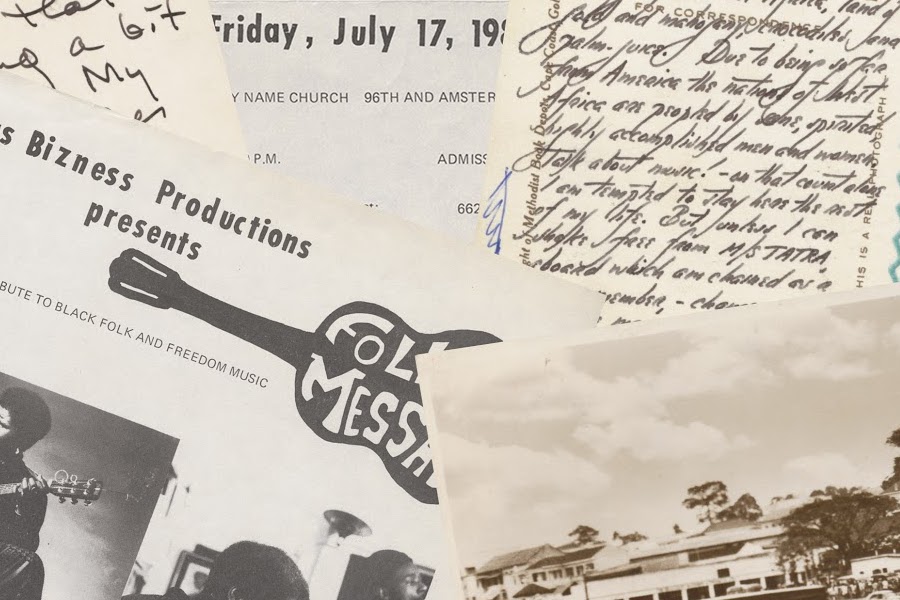On October 5, Pixel Acuity, the digital imaging service bureau of Digital Transitions, awarded the Pixel Acuity Artificial Intelligence in Cultural Heritage Exploratory Research (PA ArCHER) grant to the Center for Folklife and Cultural Heritage.
The grant is designed to spur research in and develop community understanding of the state of machine learning, computer vision, natural language processing and other forms of artificial intelligence as they apply to the work and challenges of cultural heritage institutions. Among diverse proposals submitted to the Pixel Acuity Grant Advisory Board the proposal from Center’s Ralph Rinzler Folklife Archives and Collections was selected for its significant potential to benefit the broader cultural heritage community.
Our proposal focuses on the digitization and metadata needs for the Moses and Frances Asch Collection and the Ralph Rinzler Papers, two of the most important collections in the Rinzler Archives which could be significantly enhanced through machine learning tools. It also emphasizes the potential for AI to identify and assign various cultural, regional, occupational, and musical metadata terms to highlight historical and thematic similarities and make digital objects more discoverable—further bolstering our Shared Stewardship of Collections policy efforts.
“Individually, these collections are deeply significant to those researching civil rights, ethnomusicology, folklore, anthropology, and the Institution’s history,” digital projects archivist Cecilia Peterson says. “There are many connections ready to be made between the two due to their similar contexts, content, and the time frames within which they were created. We hope to uncover these connections with the help of AI.”
Specifically, the grant will fund AI model development provided by River ai for up to 100,000 items, as well as travel costs for up to two individuals to attend an academic conference or industry round table in order to present the results of the project. The results of the project will be published and presented alongside Pixel Acuity early next year.
About River ai
Founded in 2019 by industry veterans, RIVER ai is a custom AI/ML model development firm, specializing in computer vision, natural language, and time series modeling. It builds end-to-end custom solutions to perform the following types of tasks: custom object detection (e.g., specialized equipment in factories, hospitals, medical laboratories, agricultural and heavy industry sites, etc.), custom scene analysis (e.g., building on fire, airplane taking off, car stuck in the snow, etc.), common object detection (e.g., logos, everyday objects and scenes – workplace, travel, food & wine, home, interior design, architecture, animals, etc.), face detection and emotional analysis, and text detection and optical character recognition.
About Pixel Acuity
Pixel Acuity has expertise in the preservation of cultural heritage materials through rapid-capture mass digitization. The organization tailors digitization workflows to the needs of its clients, emphasizing quality of image production while taking into consideration the preservation of the original artifact. Through a partnership with Digital Transitions, it provides not experienced staff and the equipment to implement digitization projects according to the highest cultural heritage standards.


